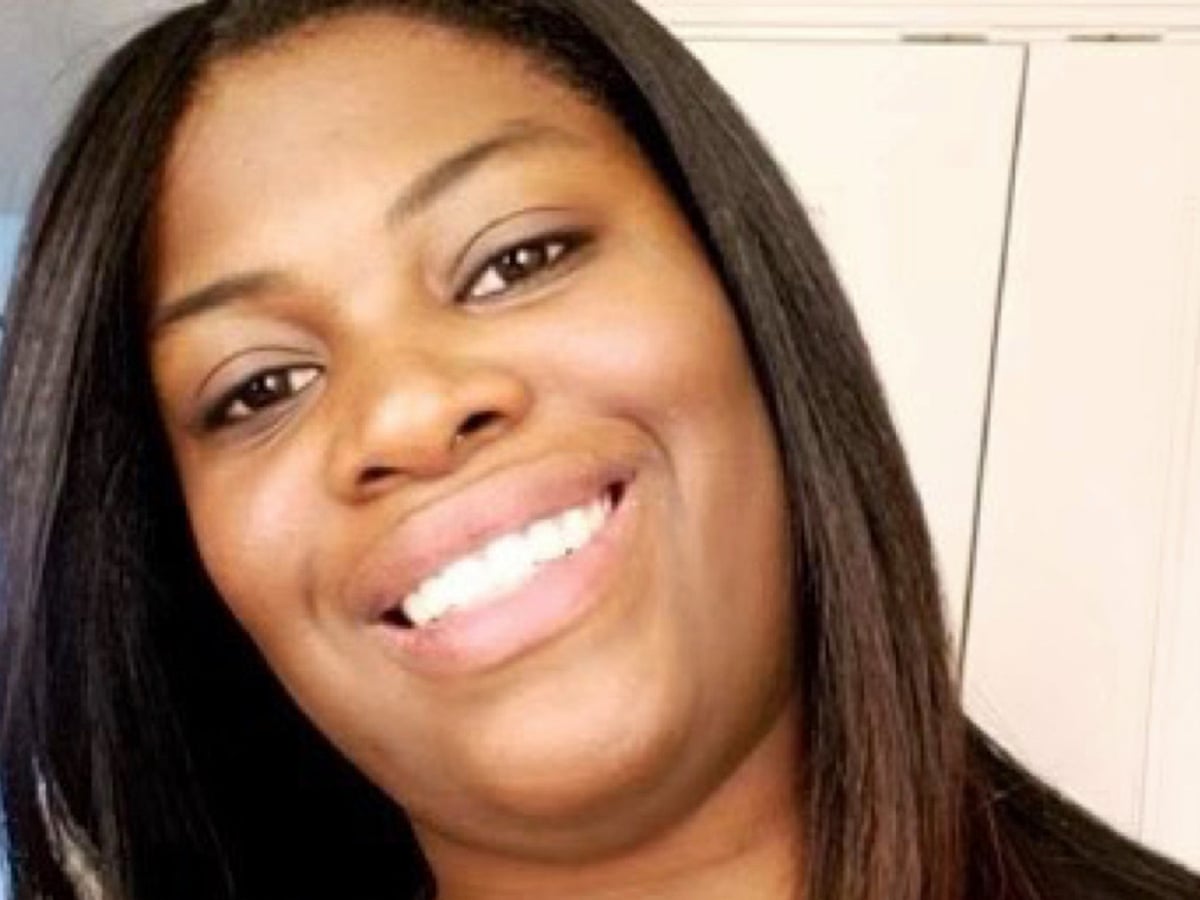Florida
A Florida Woman Was Arrested For Fatally Shooting Her Black Neighbor Over A Racial Altercation About Their Kids Playing Outside.

Susan Louise Lorincz, 58, of Florida, was jailed for manslaughter after killing and shooting her Black Neighbor, Ajike “AJ” Owens, following an argument about neighborhood youngsters playing outside her house. The Marion County Sheriff’s Office’s arrest complaint indicates that Lorincz had a history of poor encounters with local youngsters before the tragedy.
The complaint states that Lorincz reportedly slurred Owens’ children, who were playing near her home, escalating tensions. One witness, Owens’ elder child, said Lorincz threw a tablet and roller skates at the kids before the fight. However, Lorincz said Owens endangered her life, so she fired in self-defense.
In the court record, witnesses said that Lorincz had previously confronted the neighborhood youngsters and used racial insults, including degrading phrases. Owens’ family, heartbroken by the death, has demanded justice, citing the unwarranted and unjustifiable act.
Lorincz’s attorney, Amanda Sizemore, refuses to comment on the matter despite her emotional discomfort. Lorincz was granted $154,000 bail and barred from owning guns or contacting the victim’s relatives. If freed on bond, she must wear an ankle monitor.
While preparing for Owens’ burial on Monday, the community deals with the consequences of this sad occurrence. The tragedy has emphasized the need to resolve racial tensions and foster community understanding and respect.
Community Struggles With Racism And Tragic Shooting
A horrific tragedy in a tiny Florida neighborhood has left neighbors and families reeling from bigotry. Susan Louise Lorincz’s killing of Black neighbor Ajike “AJ” Owens has raised questions about racial tensions in society. A story of deep-seated hatred and cultural gap has developed from the heartbreaking tragedy, highlighting the need for community togetherness and understanding.
Black Neighbor: Racial Slurs And Neighborhood Unrest
Susan Louise Lorincz’s arrest affidavit, issued by the Marion County Sheriff’s Office, detailed a history of hatred and clashes with neighborhood youngsters, especially Black ones. Witnesses described racist comments directed at the children, indicating a history of antagonism that led to the shooting. The testimonies show how communities struggle to confront racism and promote diversity due to simmering emotions and a lack of respect.
Trials And Emotions: Finding Justice And Healing
The family of Ajike “AJ” Owens, the victim, is demanding responsibility and justice while the court procedures continue. The complicated case involving Lorincz’s claim of self-defense and claims of a history of unpleasant contacts has widened the neighborhood’s division and raised issues about racial dynamics and structural change. Despite the legal matters, Owens’ family’s emotional toll, especially the children who saw the tragedy, shows the long-term effects of racial violence and the need for help and healing in afflicted communities.
Racial Tensions And Community Response: Moving Forward
The event rekindled neighborhood discussions about racial tensions and inclusiveness. Community leaders and activists emphasize open communication and education to eliminate prejudice and promote understanding and empathy. While the legal process proceeds, the community is supporting Owens’ family and having meaningful conversations to create a more unified and respectful atmosphere where everyone, regardless of color or ethnicity, feels secure and appreciated.
Deep-seated Prejudices And Local Impact
The massacre has forced the local community to confront years of racial intolerance. Residents, startled and saddened by the tragedy, have spoken out about prejudice and bigotry. The event has started a conversation about systematic racism and the need to fight it together. Community-led education and awareness campaigns have grown to promote neighborhood inclusiveness and respect.
Read Also: Remembering Rosewood: Centennial Of Racist Massacre Highlights Racial Justice Struggle
Justice In Strained Relations: Legal And Social Implications
As the case progresses, it has raised questions about how the judicial system should approach racially motivated violence. Legal professionals and advocacy organizations have stressed the need for unbiased investigations and accountability in racial prejudice instances. The event showed how tricky it is to protect individual rights while confronting deep-seated societal biases. Recent calls for justice system changes emphasize the need for fairness and a detailed analysis of the socioeconomic factors perpetuating racial disparities.
Unity After Tragedy: Healing And Rebuilding
After the incident, community healing and togetherness have taken precedence. To assist victims in coping with trauma and grief, support groups and counseling programs have been created. Community-led reconciliation initiatives that promote empathy and respect have grown, stressing the need for conversation in healing racial barriers. After tragedy, collaborative efforts to create a more inclusive and inviting community have garnered support, demonstrating a shared commitment to togetherness and respect.
Educational Reforms And Awareness: Promoting Inclusivity
Educational institutions and community groups have implemented thorough reforms and awareness campaigns in reaction to the tragedies and racial tensions. Cultural sensitivity and anti-racism courses have been included in school curricula to encourage empathy and knowledge. Communities have held workshops and seminars to foster communication and understanding amongst varied populations. These efforts, led by local leaders and educators, promote inclusion and respect, building the basis for a more peaceful and fair society.
Building Solidarity And Empowerment Networks For Victims’ Families
While court actions and community conversations continue, massive support networks have arisen for Ajike “AJ” Owens’ family. Survivors of senseless family violence may find solace in counseling, financial aid, and emotional support groups. Broad support for grassroots activities and fundraisers shows the community’s sympathy for those touched by the tragedy. The community empowers and elevates the victims’ families via these activities, creating a network of compassion and support beyond the neighborhood.












You must be logged in to post a comment Login